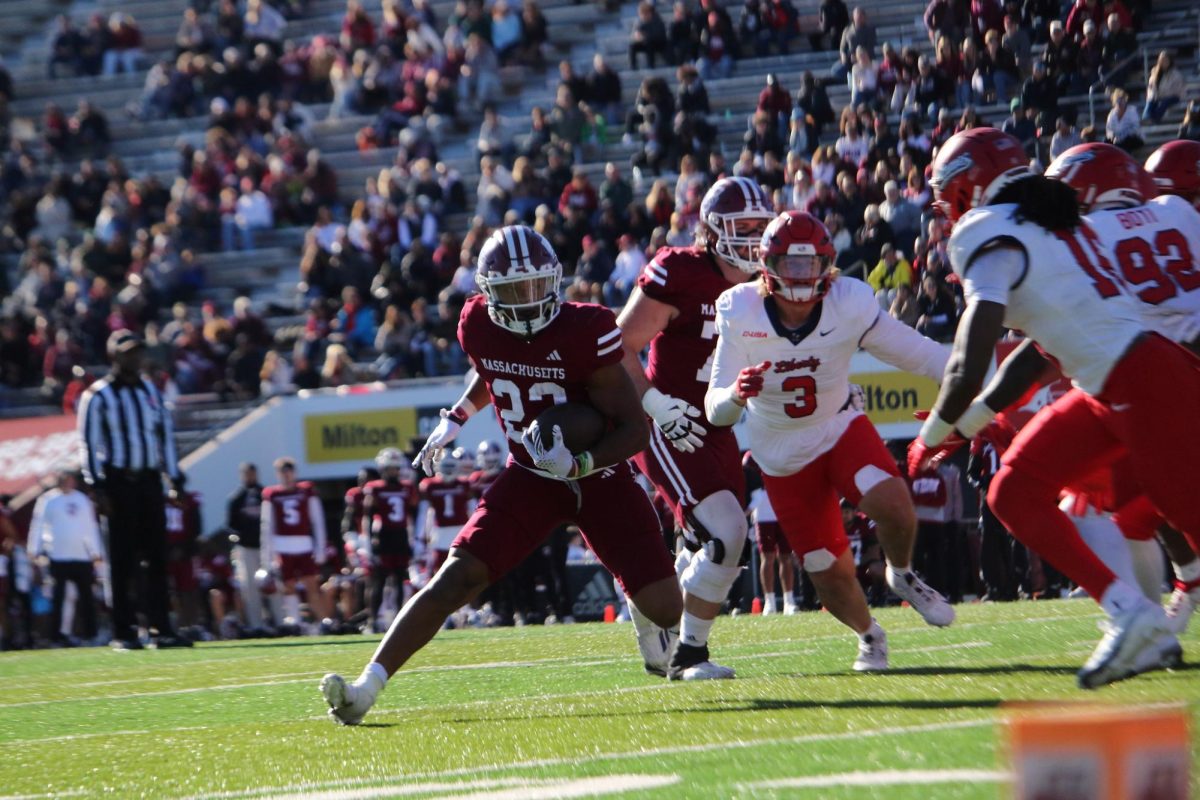It’s been more than six months since the Bush administration called an end to hostilities in Iraq, but the current climate overseas is scarier than Courtney Love on drugs.
The number of American soldiers killed during the Iraq invasion was 138. Thus far, the number of American soldiers that have been killed since President Bush declared an end to hostilities is more than 250. No weapons of mass destruction have been found. Saddam Hussein and Osama bin Laden are still on the loose.
As the death toll and injuries continue to rise and the cost of war grows tremendously, one wonders: Where was the outrage before the war started?
It was collectively muzzled.
Despite anti-war campaigns, the majority of Americans were too busy cheering on the Bush administration and their misguided policies. Thoughtful dialogue succumbed to knee-jerk approvals.
Even in the world of pop culture, the opinions of stars were met with giant tomatoes. Perhaps the high-profileest anti-war statements (either through words or through art) revolve around the Dixie Chicks, Michael Moore and Madonna. More than half a year later they beg to be revisited.
SHUT THE CLUCK UP
Multi-platinum selling music trio the Dixie Chicks, who hail from Bush’s home state of Texas, received a boiling when its lead singer made anti-Bush remarks. Right before the war, lead singer Natalie Maines said, in a concert in London, that she was “ashamed the president of the United States is from Texas.” Following the statements, country stations around the country pulled the band’s music from playlists.
Station managers said their decision was prompted after receiving phone calls from angry listeners. Airplay for the band’s hit “Travelin’ Soldier” dropped 15 percent after the remark. Unfortunately, those who jumped on the Chicks’ bashwagon failed to see irony behind the song’s lyrics.
“Travelin’ Soldier” is about a lonely 18-year-old who is being sent to Vietnam to fight in the Vietnam War. Before departing, the soldier finds a lovely girl, who sends him letters while he’s fighting. When the war escalates, he writes, “Now don’t worry but I won’t be able to write for a while.” The girl waits and waits for the letter that says “my soldier’s comin’ home.” That letter never arrives. The travelin’ soldier in the song never makes it home.
In hindsight, the song served as an eerie foreshadowing from a group that tried to cluck their view but was instead tarred and feathered.
MOORE OR LESS?
Days after the war commenced, the brash Michael Moore burst into an anti-war tirade during his acceptance speech for best documentary Oscar for “Bowling for Columbine,” a film about gun culture in American society.
“We like nonfiction and we live in fictitious times,” he said. “We live in a time where we have fictitious election results that elect a fictitious president. We live in a time where we have a man sending us to war for fictitious reasons.”
Naturally, the audience’s loud boos drowned out the applause. So why did Michael Moore, out on a night where glittery fashion and the overall glamour of Hollywood presided, act out this way?
Because “I’m an American,” he said, when asked about it backstage. He’s right. If America is a democratic society, its citizens should be able to speak out against political issues.
CENSORED ‘LIFE’
Perhaps the most brazen statement against the war came in the form of a music video from Madonna that never aired. The video, which was available on unofficial Web sites during the time it was pulled, sees Madonna making anti-war statements.
In the video, models strut down a fashion runway as images of war are displayed on huge monitors on the wall. Madonna sings in front of a screen where orange fireballs erupt. Rapid edits of planes dropping bombs and fiery explosions move the video along. At the end of the video, Madonna and overweight female dancers crash the show with a military tank, begin dancing menacingly and spray the paparazzi and crowd with a water gun. Finally, the video reaches a climax when Madonna lobs a phony hand grenade to a Bush look-alike in the crowd, who catches it and uses it to light his cigar.
“The ending of the video is really important. I throw this hand grenade … But it gets caught,” Madonna explained to MTV earlier in the year. “And the one who catches it takes something that could be violent and destructive and takes the destruction out of it by turning it into something else. That’s my hope for an alternative, not only to this war, but all wars.”
Controversy has always been Madonna’s best friend. She never had qualms about voicing her opinion – no matter how left of center it may have been. She’s taunted sexism and Catholicism, made a book about sex, promoted gay culture before it was cool and made statements about racial equality – all while being chastised. So it was clear that when Madonna decided to pull her video, something was seriously amiss.
She issued a statement explaining her decision to halt the video’s U.S. release: “Due to the volatile state of the world and out of sensitivity and respect to the armed forces, who I support and pray for, I do not want to risk offending anyone who might misinterpret the meaning of this video.”
But it was apparent that Madonna decided to shelve the video indefinitely after witnessing the scorching the Chicks received.
“You know, it’s ironic we’re fighting for democracy in Iraq because we ultimately aren’t celebrating democracy here,” Madonna said, airing her grievances in a VH1 special before the airing of a toned down version of the video. “Because anybody who has anything to say against the war or against the president or whatever is punished, and that’s not democracy – it’s people being intolerant.” In the altered video, she is dressed in military fatigues and simply stands in front of changing flags of different countries.
***
Meaningless pop-culture is enjoyable and when we want an escape, we turn to movies, television, music and other modes of entertainment. But it’s also important for mainstream artists to raise important issues, rather than constantly feed us sparkly distractions. We can only benefit from these artists who hold up a mirror to our times and societal issues.
If the United States is indeed the beacon for freedom of expression and freedom, statements against the war and even against the president of the U.S.A. should be allowed to be expressed openly. One of our missions in Iraq is to make the nation a democratic society. How can we expect to do this if our nation is not a democracy?
Last week President Bush said that the United States will maintain a military presence in Afghanistan and Iraq until Saddam Hussein is killed or captured. America must now suffer through a holiday season knowing the lives of our travelin’ soldiers may never make it back home.
Nikolas Markantonatos is a Collegian columnist.






